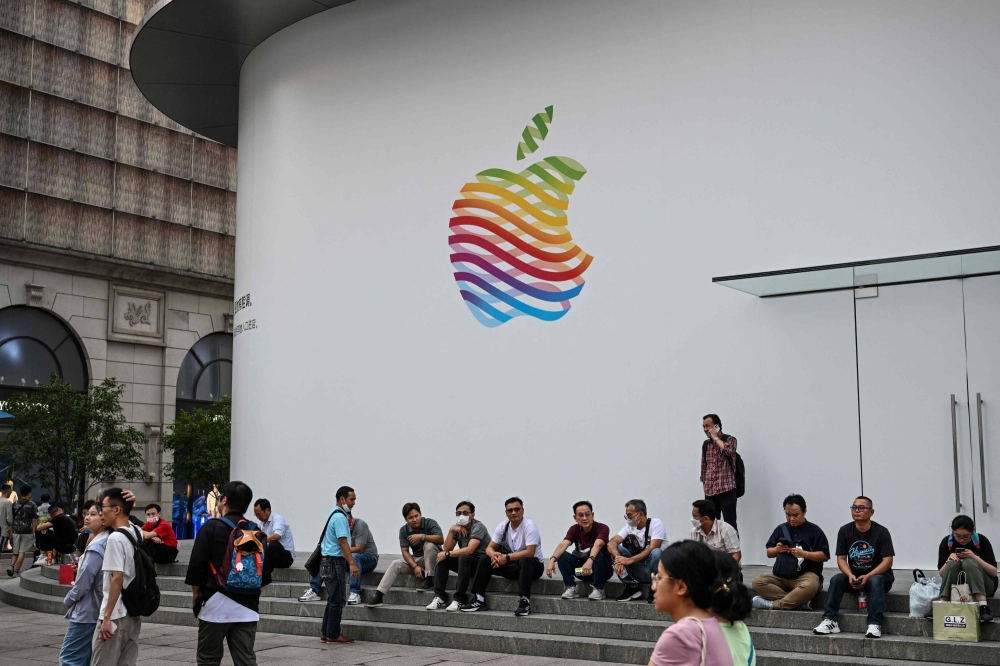On September 6, 2023, China’s Ministry of Industry and Information Technology (MIIT) issued a directive ordering government officials at central government agencies not to use iPhones or other foreign-branded devices for work or bring them into the office. The ban was reportedly due to security concerns, as the Chinese government is worried that iPhones could be used to spy on its officials.
The ban is a major blow to Apple, as China is one of its biggest markets. The company’s iPhone sales in China have been growing steadily in recent years, and the country now accounts for about 18% of Apple’s global revenue. The ban is estimated to cost Apple billions of dollars in lost revenue.
The ban is also likely to damage Apple’s reputation in China. The company has been trying to cultivate a good relationship with the Chinese government in recent years, but the ban is likely to make that more difficult. It could also make it more difficult for Apple to do business in China in the future.
The ban is the latest in a series of challenges that Apple has faced in China. In recent years, the Chinese government has cracked down on foreign technology companies, including Apple. The government has also imposed stricter regulations on data security, which has made it more difficult for Apple to operate in China.
It is unclear how long the iPhone ban will last. However, it is clear that the ban is a major setback for Apple. The company will need to find ways to mitigate the impact of the ban if it wants to continue to grow in China.
Here are some of the possible ways that Apple can mitigate the impact of the ban:
- Offer discounts to government officials on other Apple products, such as iPads and Macs.
- Partner with Chinese companies to develop phones that are more secure for government use.
- Invest in research and development to improve the security of its products.
- Lobby the Chinese government to lift the ban.
It remains to be seen how Apple will respond to the ban. However, the company is sure to take the matter seriously, as China is a key market for its business.
In addition to the economic impact, the iPhone ban also has political implications. The ban is seen by some as a sign of China’s growing authoritarianism and its desire to control the flow of information. It is also seen as a challenge to Apple’s global dominance.
The iPhone ban is a complex issue with far-reaching implications. It is a test of Apple’s resilience and its ability to adapt to a changing political landscape. It is also a test of China’s commitment to free trade and its willingness to allow foreign companies to operate in its market.
Only time will tell how the iPhone ban will play out. However, it is clear that this is a major event that will have a significant impact on Apple, China, and the global technology industry.
Here are some additional details about the iPhone ban:
- The ban applies to all iPhones, including the latest models.
- The ban also applies to other foreign-branded devices, such as laptops and tablets.
- The ban is not clear whether it applies to government officials who use iPhones for personal use.
- The ban is reportedly being enforced through a combination of education and enforcement.
- The Chinese government has not commented publicly on the ban.
The iPhone ban is just one of the challenges that Apple faces in China. The company is also facing increasing competition from Chinese smartphone makers, such as Huawei and Xiaomi. The Chinese government is also cracking down on Apple’s supply chain in China.
Despite the challenges, Apple remains committed to China. The company has invested heavily in the country and has created millions of jobs. Apple is also working with the Chinese government to address the security concerns that led to the iPhone ban.
The iPhone ban is a setback for Apple, but it is not a fatal blow. The company has a strong track record of overcoming challenges. Apple is likely to continue to grow in China, albeit at a slower pace.










